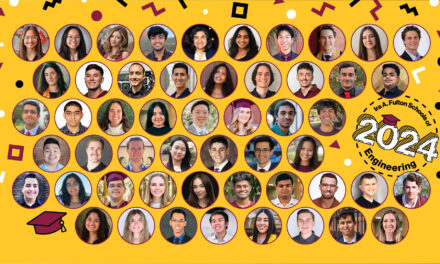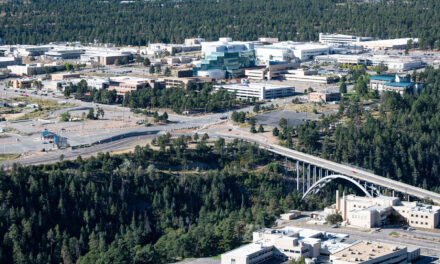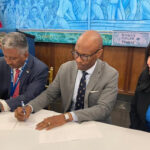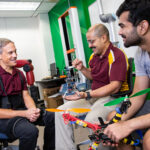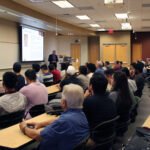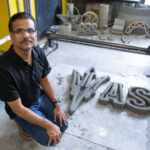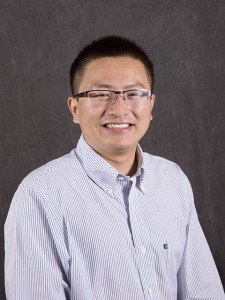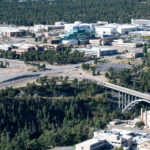
ASU engineer nets NASA early career award for solar cell research
Yuji Zhao, assistant professor of electrical and computer engineering in the Ira A. Fulton Schools of Engineering, has been chosen to receive a prestigious Early Career Faculty Space Tech Research Grant awarded by the National Aeronautics and Space Administration (NASA).
The award to Zhao is a first for the Fulton Schools faculty.
NASA has selected eight university-led projects focused on innovative, early stage technologies that will address high-priority needs of America’s space program. They are described as “unique, disruptive” and “transformational.”
Zhao is working on new technology for high-temperature solar cells to be used in space, where power generation is a critical issue. Because satellites are closer to the sun, the high-temperature environment negatively impacts cell efficiency.
Zhao is working with a relatively new semiconductor material, gallium nitride, which operates well under high temperatures.
“Our research lab is developing this material for solar cell application, fabricating the device and testing its efficiency,” Zhao said. “The first step is to produce a high-quality material, because it does not exist in nature.”
Many fabrication techniques, according to Zhao, hinder the ability to produce the material, which consists of many thin layers. His team is looking to overcome those challenges.
The NASA awards are about $200,000 per year, up to a possible three years of research, for outstanding young faculty.
“These early career researchers will provide fuel for NASA’s innovation engine,” said Steve Jurczyk, associate administrator for NASA’s Space Technology Mission Directorate at the agency’s headquarters in Washington.
“Technology drives exploration, and investment in these technologies and technologists is essential to ensure NASA and the nation have the capabilities necessary to meet the challenges we will face as we journey to Mars,” he said. “The faculty selected and their colleagues help assure a robust university research community dedicated to advanced space technology development.”
Zhao earned a bachelor’s degree in microelectronics at Fudan University in China and a doctoral degree in electrical and computer engineering at the University of California, Santa Barbara. He won a record four consecutive Outstanding Research Awards from the university’s Solid State Lighting & Energy Electronics Center.
His research on the semiconductor compound Gallium Nitride was recognized with a Most Cited Article of the Year Award from the research journal APEX (2012), an Editor’s Pick of the Year Award from the journal APL (2012), and was featured in more than 100 international news outlets.
This year Zhao also was selected as a Science Foundation Bisgrove Scholar, recognizing his research that has “the potential to transform ideas into great value for society.” Noted projects are focused on advances in solid-state lighting based on light-emitting diode (LED) technology and on developing LED-based “Li-Fi” communication technology that would provide faster, safer and more reliable wireless network connectivity.
By Sharon Keeler





